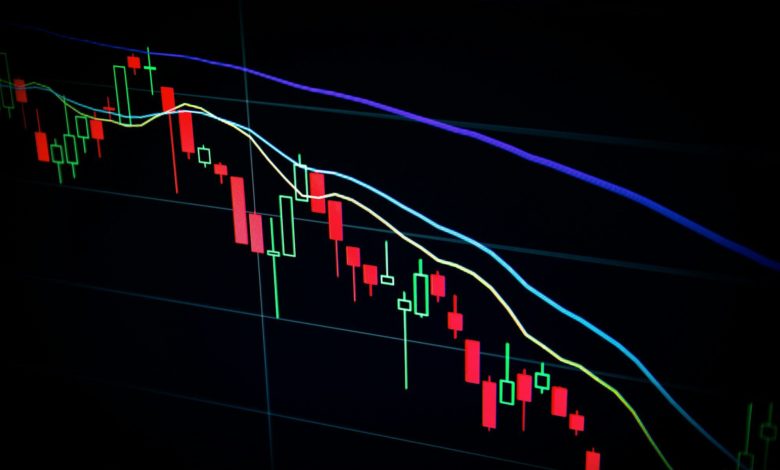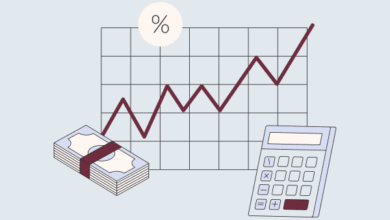Stock Market Today: U.S. Stocks Slide as Treasury Yields Spike and Tariff Uncertainty Looms

U.S. stocks opened lower on Tuesday as investors digested rising Treasury yields and continued uncertainty over potential tariffs. The Dow Jones Industrial Average (DJI) dropped 0.8%, while the S&P 500 (GSPC) slid more than 1%. The Nasdaq Composite (IXIC), heavily weighted with technology shares, fell 1.3%, reflecting growing concerns that elevated yields and trade tensions could weigh on growth-sensitive sectors.
Tuesday’s dip comes as Wall Street heads into September, historically one of the most volatile months for the stock market. Treasury yields climbed, with the 30-year note (TYX) approaching 5% for the first time since July and the 10-year yield (TNX) rising near 4.3%. Investors are now bracing for key economic data later this week that could influence the Federal Reserve’s policy path.
Market Movers:
- Alphabet (GOOGL) -2.26%: Shares of Alphabet were among the top decliners in the tech sector, falling more than 2% amid broad Nasdaq weakness. Investors are concerned that higher interest rates could dampen ad spending growth, which accounts for the majority of Alphabet’s revenue. Analysts also cited caution ahead of upcoming regulatory scrutiny in the EU.
- Tesla (TSLA) -3.12%: Tesla continued its slide, falling over 3% on Tuesday. Rising bond yields have increased concerns about consumer financing costs for electric vehicles, potentially slowing demand. Additionally, investors are watching production updates from its new factories, with any supply hiccups likely to intensify volatility in the stock.
- Apple (AAPL) -1.85%: Shares fell nearly 2% as the tech giant’s growth outlook faced pressure from higher interest rates. Analysts noted that elevated yields can weigh on tech valuations, particularly for companies with significant overseas revenue. Despite the decline, Apple continues to benefit from strong iPhone sales and expanding services revenue.
- Amazon (AMZN) -1.65%: Amazon dipped as traders weighed rising costs against slowing e-commerce growth. Higher Treasury yields tend to push investors toward safer assets, reducing demand for high-growth equities like Amazon. The company’s cloud business remains a bright spot, but overall investor sentiment remains cautious.
- Microsoft (MSFT) -1.42%: Microsoft saw a slight decline, reflecting broader tech weakness. Investors are concerned that rising rates could affect enterprise spending on software and cloud services. Despite the pullback, analysts emphasize Microsoft’s strong recurring revenue and AI initiatives as long-term positives.
Treasury Yields and Market Sentiment
U.S. Treasury yields jumped on Tuesday, signaling investor concern over inflation and interest-rate policy. The 30-year yield nearing 5% has fueled speculation that long-term borrowing costs could rise further, which tends to pressure growth-focused sectors like technology. Analysts noted that higher yields often prompt a rotation into defensive sectors such as utilities and consumer staples, suggesting markets may continue to experience volatility in the near term.
The yield spike also complicates the Fed’s policy outlook. While the central bank has indicated a willingness to cut rates later this year, stronger-than-expected inflation data or higher yields could delay reductions, maintaining pressure on equities.
Tariff Fears and Trade Uncertainty
Trade tensions remain a key factor influencing investor behavior. President Trump has hinted at potential new tariffs targeting digital goods and specific imports, which has contributed to unease in global markets. Investors are particularly cautious about companies with significant international exposure, including tech giants and industrials. Economists warn that new tariffs could raise costs for U.S. manufacturers and consumers, potentially slowing growth in the second half of the year.
Looking Ahead
Investors will be closely monitoring key economic indicators this week, including the monthly jobs report and the Bureau of Labor Statistics’ payroll data. These reports will provide insight into wage growth, labor market strength, and the broader economic trajectory, all of which are critical for shaping expectations around Federal Reserve policy.
With Treasury yields elevated and trade uncertainty persisting, the market may remain volatile in the coming sessions. Traders are likely to weigh the potential for policy shifts against corporate earnings and macroeconomic signals, making stock selection and risk management more crucial than ever.




